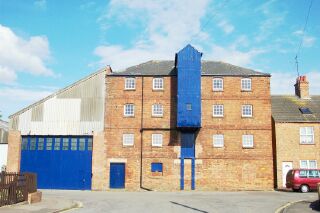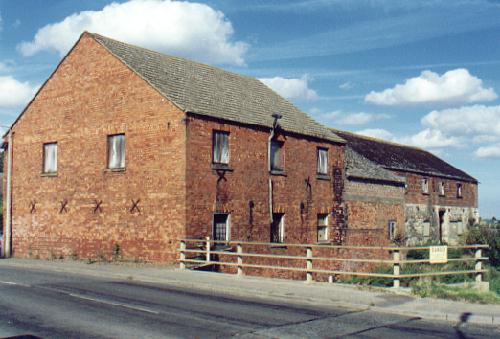|
The corn trade
Arable farming has been one of the mainstays of the local economy in Bourne and cereal production has played an important part. Wherry's grain warehouse in South Street was built in the late 18th century to handle the wheat, barley and oats grown by local farmers who delivered their yield by horse and cart which waited outside while the sacks were hauled up by gantry. Older inhabitants of Bourne have fond memories of some of the horses used in this exercise, particularly a white Shire called Flower. This horse was owned by the proprietors and was regarded with some public affection and continued in employment until 1967. The scheme was submitted for planning permission in the autumn of 2006 by Mill Developments Limited and approved by Bourne Town Council. It is proposed to convert the warehouse building into six retirement flats with an extension to the adjoining land where another 18 flats will be built, all construction work to be in keeping with the current period appearance of the main property and work is expected to start during the summer of 2007. Dr Robert Fuller of Bourne Civic Society, welcomed the scheme. "It is quite a high density development but one that demonstrates sensible use", he said. "The listed building will be preserved and the extension suitably matched." The corn trade during the 18th and 19th centuries resulted in the construction of many similar wholesale warehouses around the town and although most have disappeared, some survive and have been converted for modern commercial purposes or have been demolished and the sites redeveloped. A four-storey grain warehouse overlooking the car park in Burghley Street was used for flax processing in the early 20th century and until recently for storage and distribution by Nursery Supplies (Bourne) Ltd although this firm has now closed down. The building stands empty but is being occasionally maintained and was re-painted during 2002 and its future is now uncertain. In Cherryholt Road, a similar building on the banks of the Bourne Eau is used for car auction sales and other enterprises.
REVISED JANUARY 2010 See also Eastgate Mill Wherry and Sons The Burghley Street warehouse Wherry's warehouse Flax
Go to: Main Index Villages Index |
||||||


